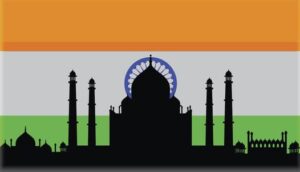India’s Supreme Court has ruled that privacy is a fundamental right of Indian citizens. The decision was made unanimously by a nine-person bench of judges.
 The ruling could substantially impact Aadhaar, India’s national biometric ID program, but it isn’t yet clear how. In hearings ahead of the ruling, some Supreme Court judges hinted that privacy rights would be considered on a tiered basis, with rigid protections for ‘intimate’ personal information and lower standards for information in the ‘private’ and ‘public’ realms. That kind of approach could still be taken; as Reuters reports, Justice Sanjay Kishan Kaul wrote in his ruling that the right to privacy ‘protects the inner sphere of an individual from both state and non-state actors’, suggesting that other privacy considerations may apply to outer spheres.
The ruling could substantially impact Aadhaar, India’s national biometric ID program, but it isn’t yet clear how. In hearings ahead of the ruling, some Supreme Court judges hinted that privacy rights would be considered on a tiered basis, with rigid protections for ‘intimate’ personal information and lower standards for information in the ‘private’ and ‘public’ realms. That kind of approach could still be taken; as Reuters reports, Justice Sanjay Kishan Kaul wrote in his ruling that the right to privacy ‘protects the inner sphere of an individual from both state and non-state actors’, suggesting that other privacy considerations may apply to outer spheres.
A smaller bench of judges will now explore how the ruling impacts Aadhaar specifically – a complex task, given the program’s expansive reach across Indian society, with Aadhaar used to authenticate individuals for welfare subsidies, tax filings, bank account creation, and more.
The ruling could have dramatic impacts on other issues, too, such as by upturning laws banning the consumption of beef and alcohol, and outlawing homosexuality.
Sources: Reuters, BBC News, Bloomberg, TechCrunch
–
August 24, 2017 – by Alex Perala


Follow Us